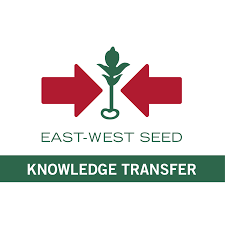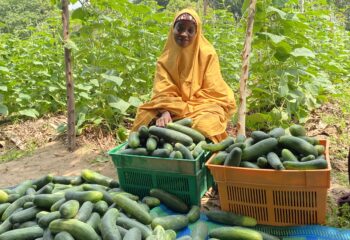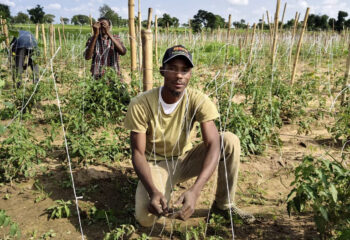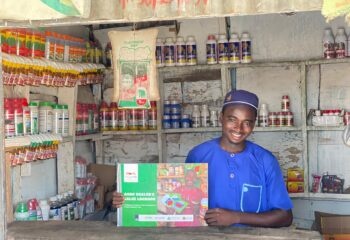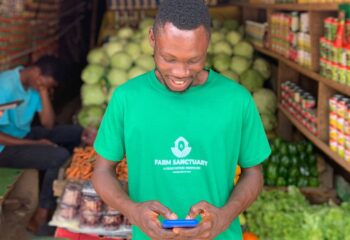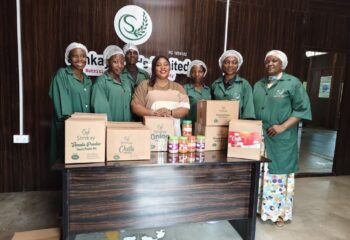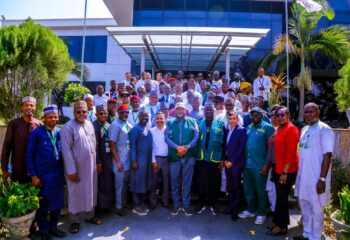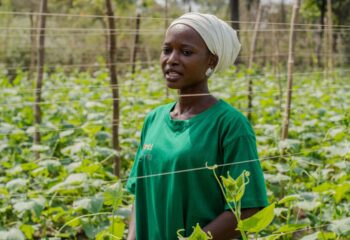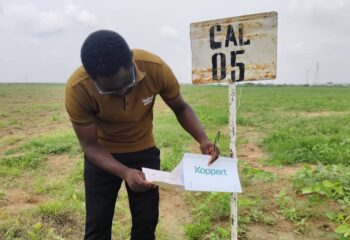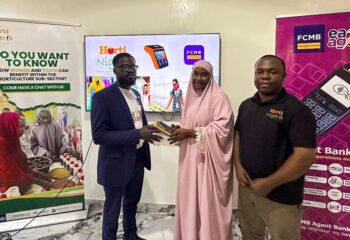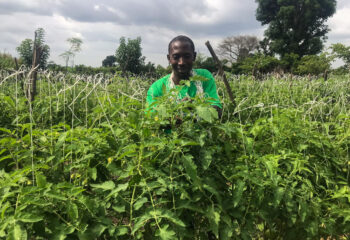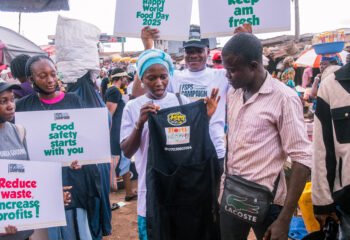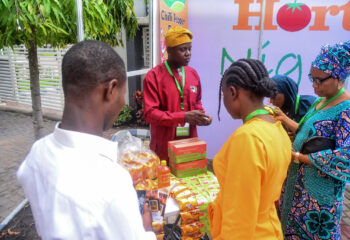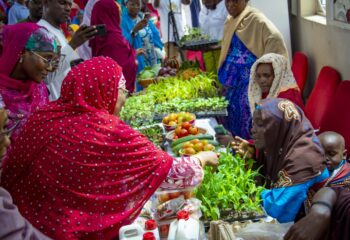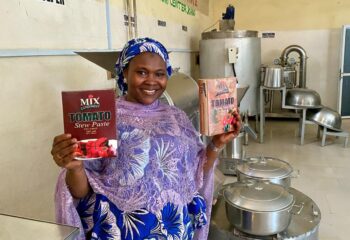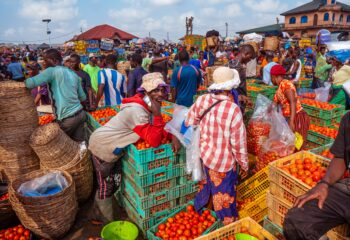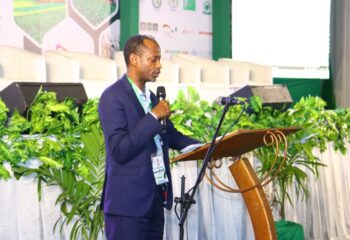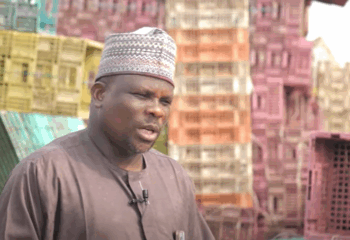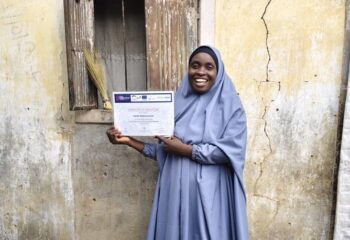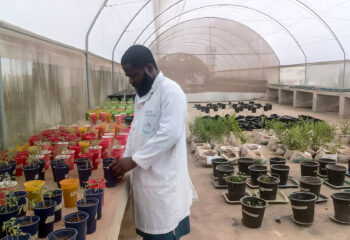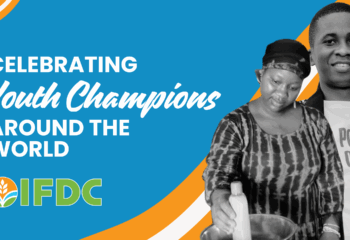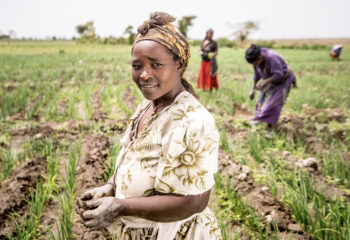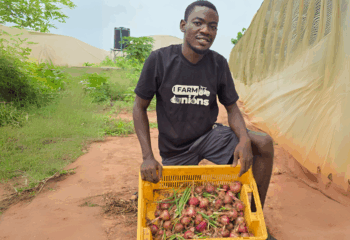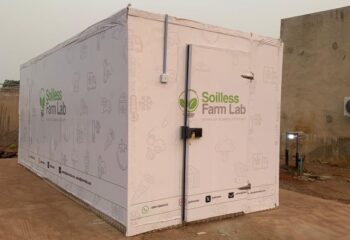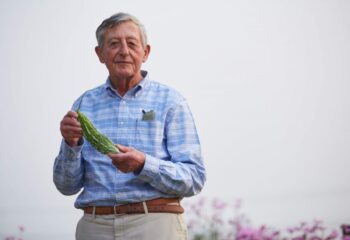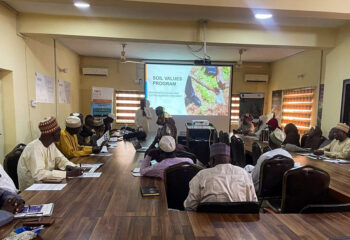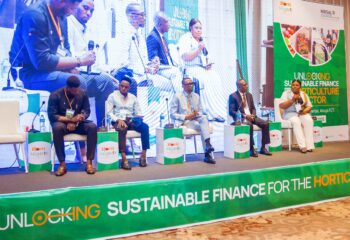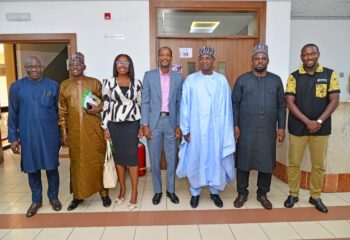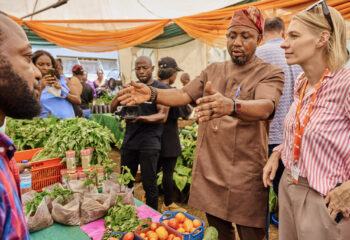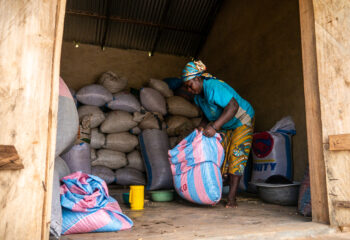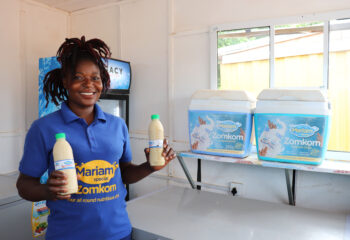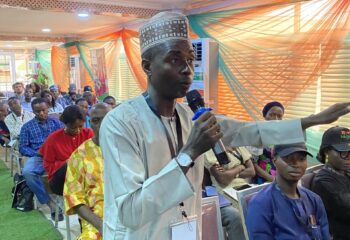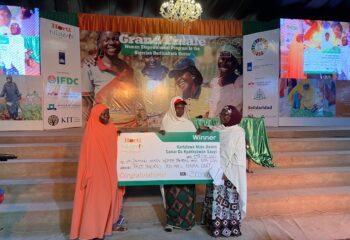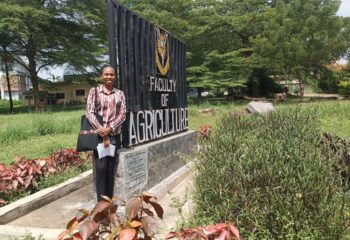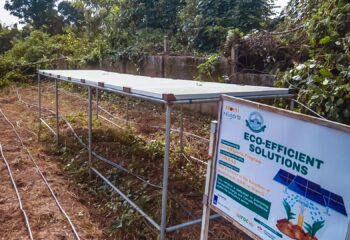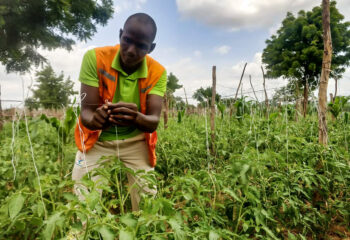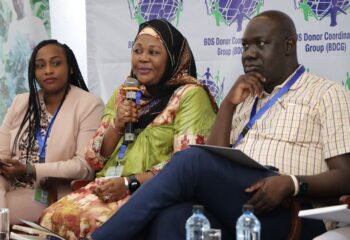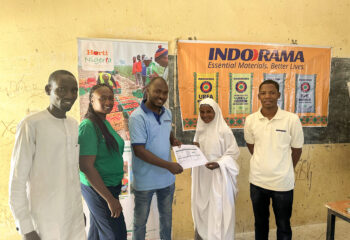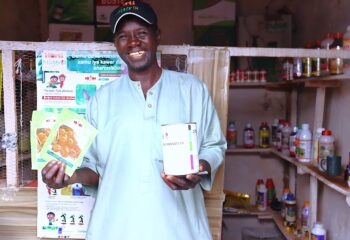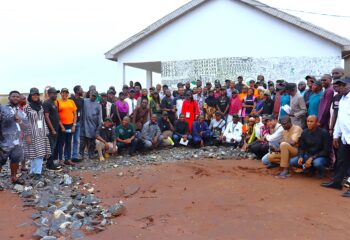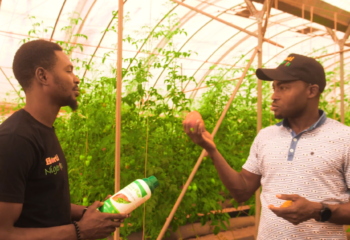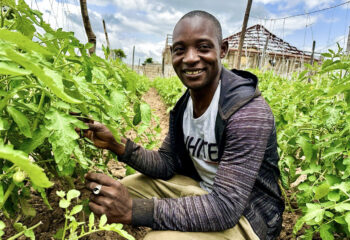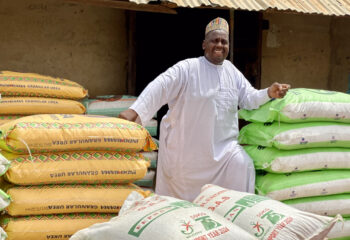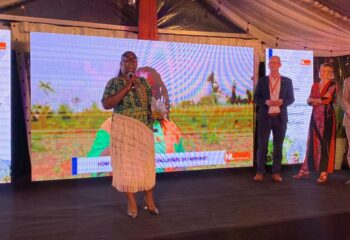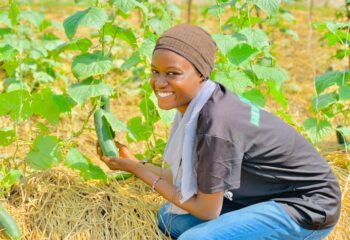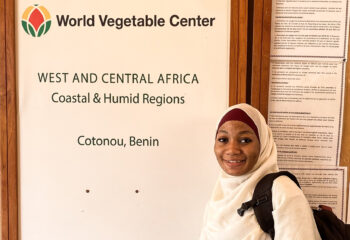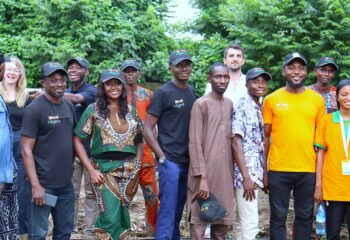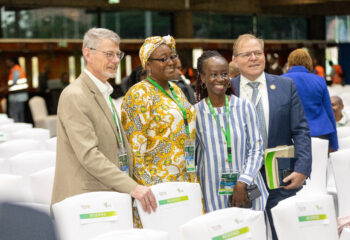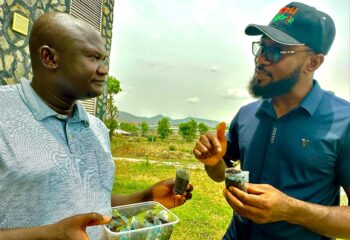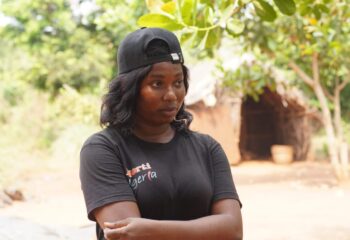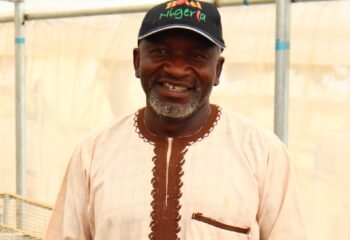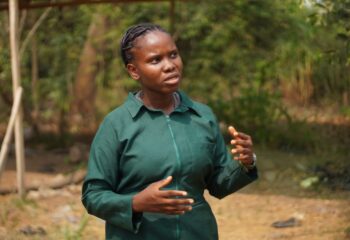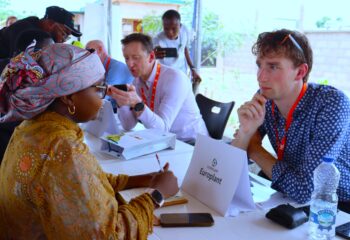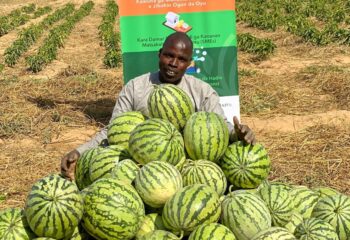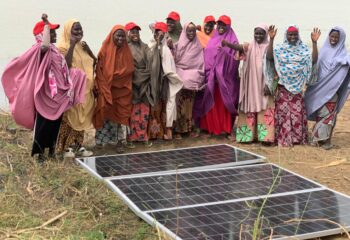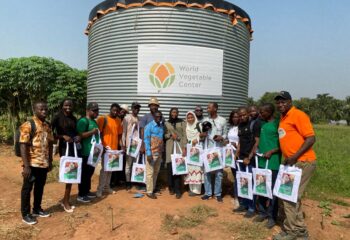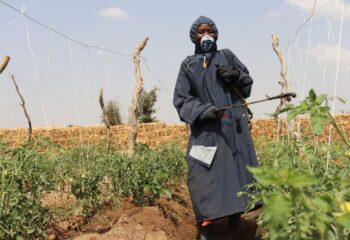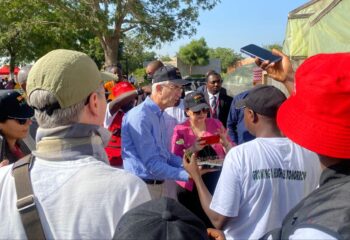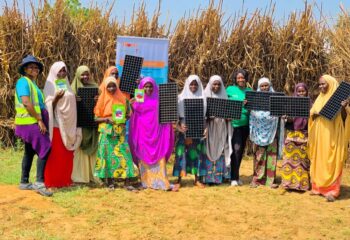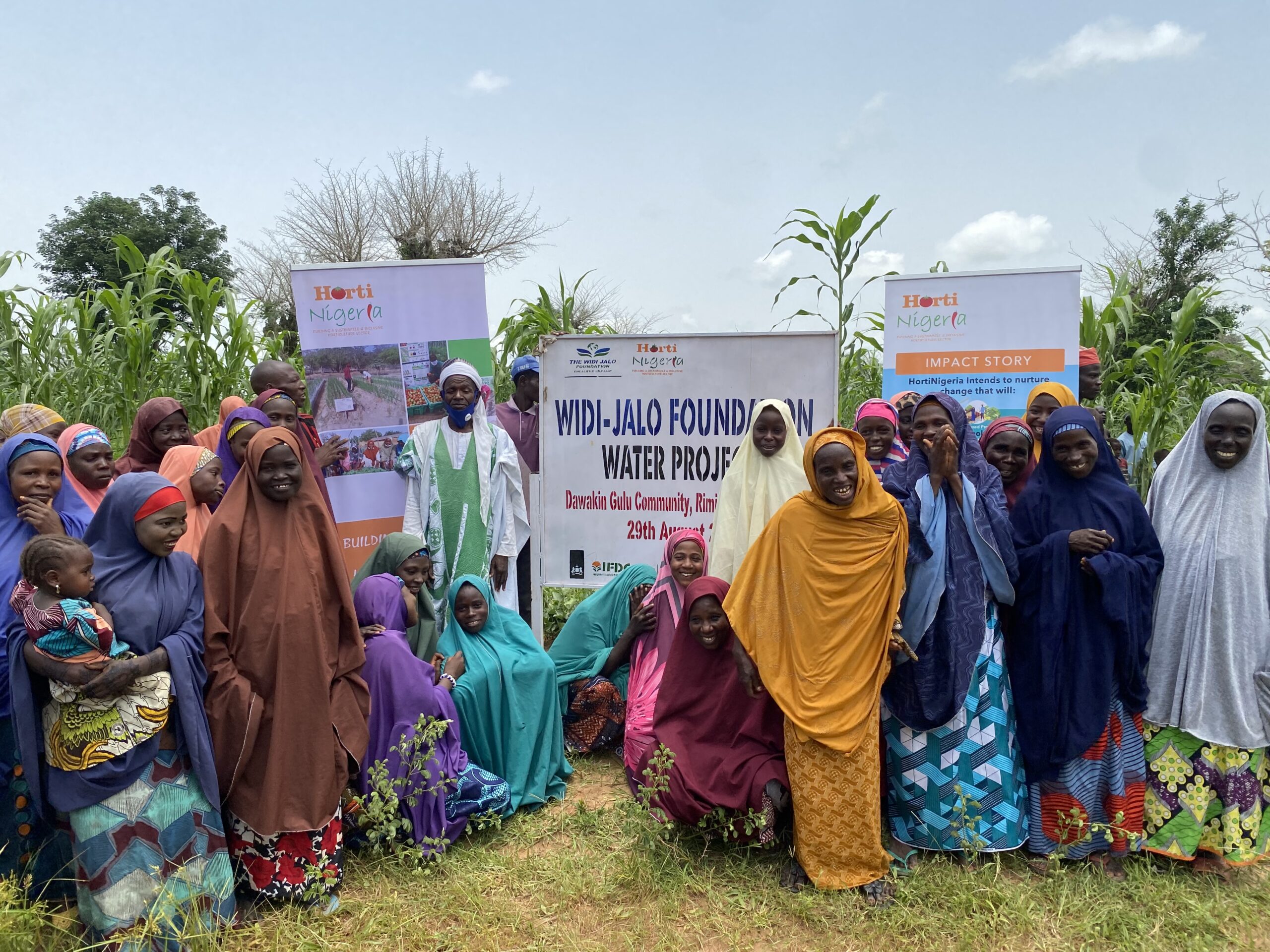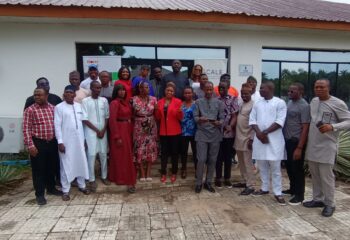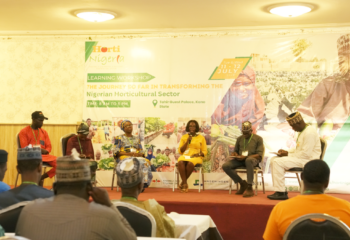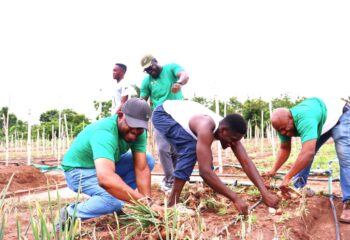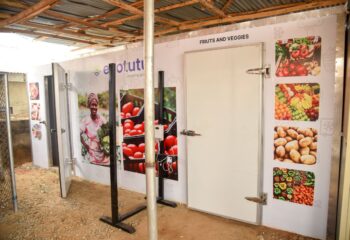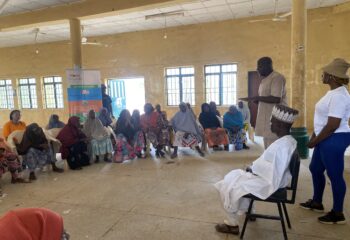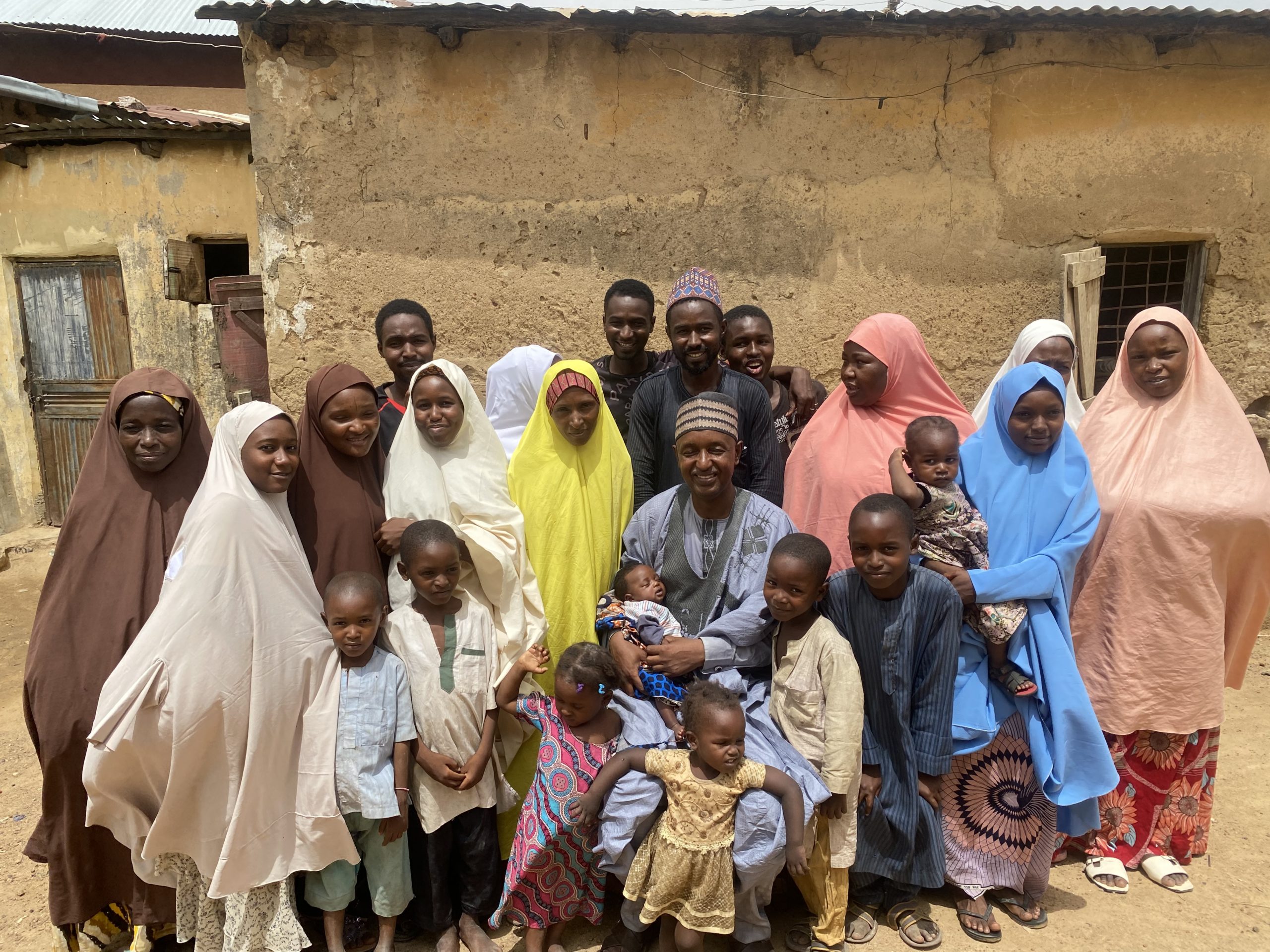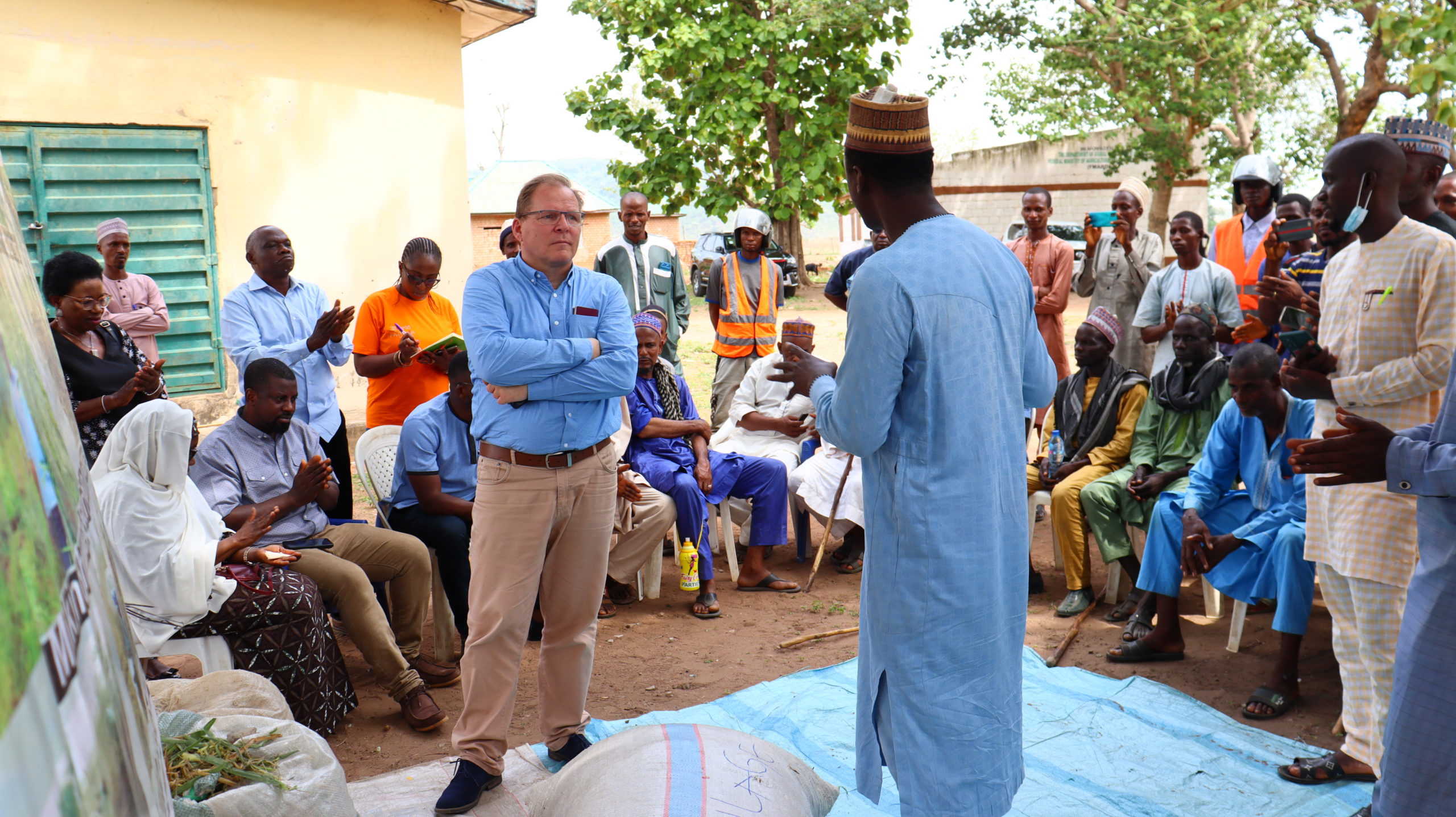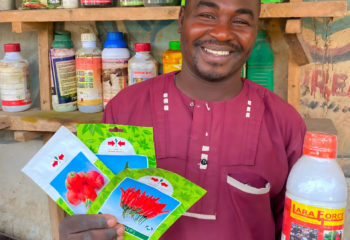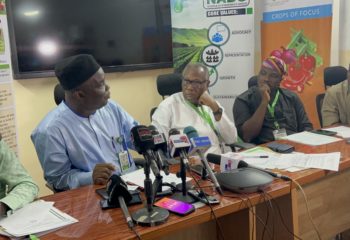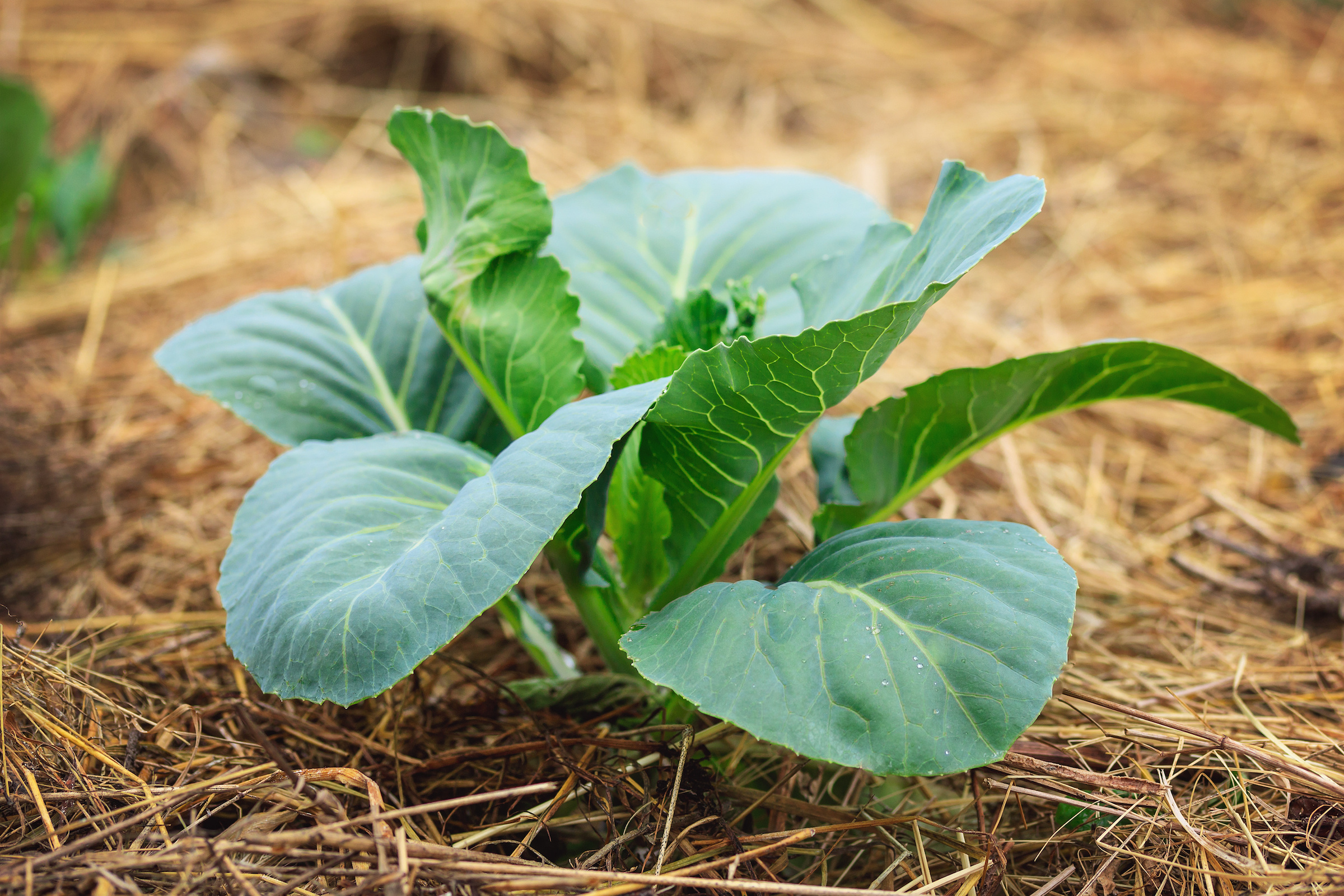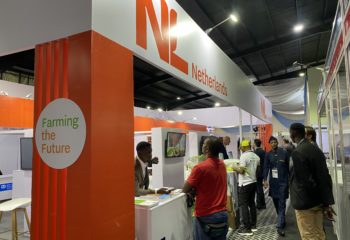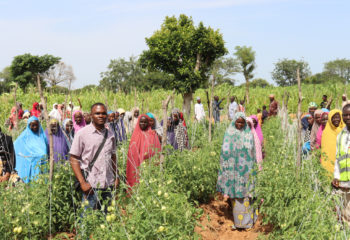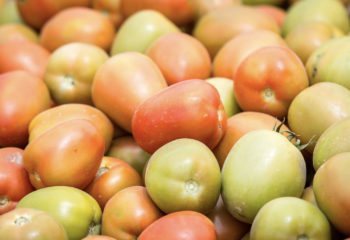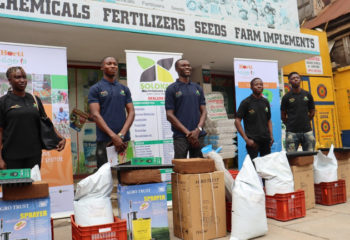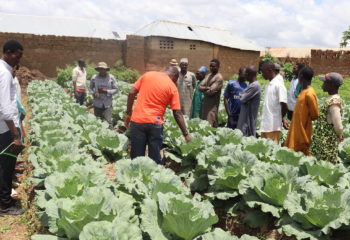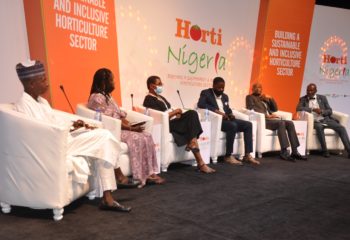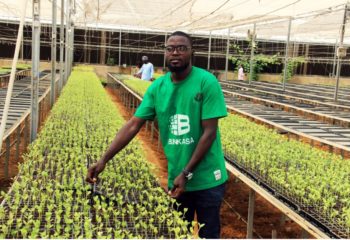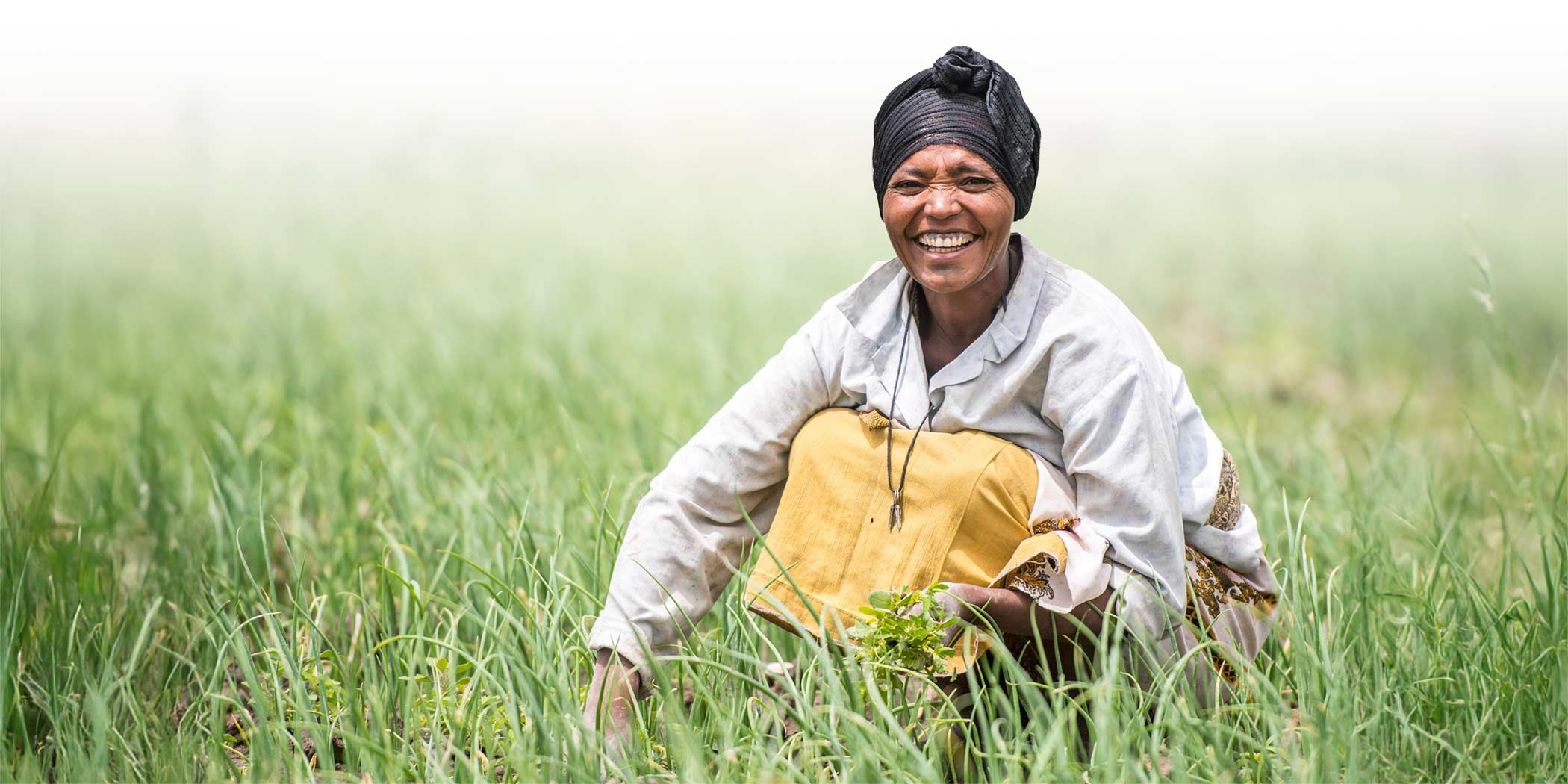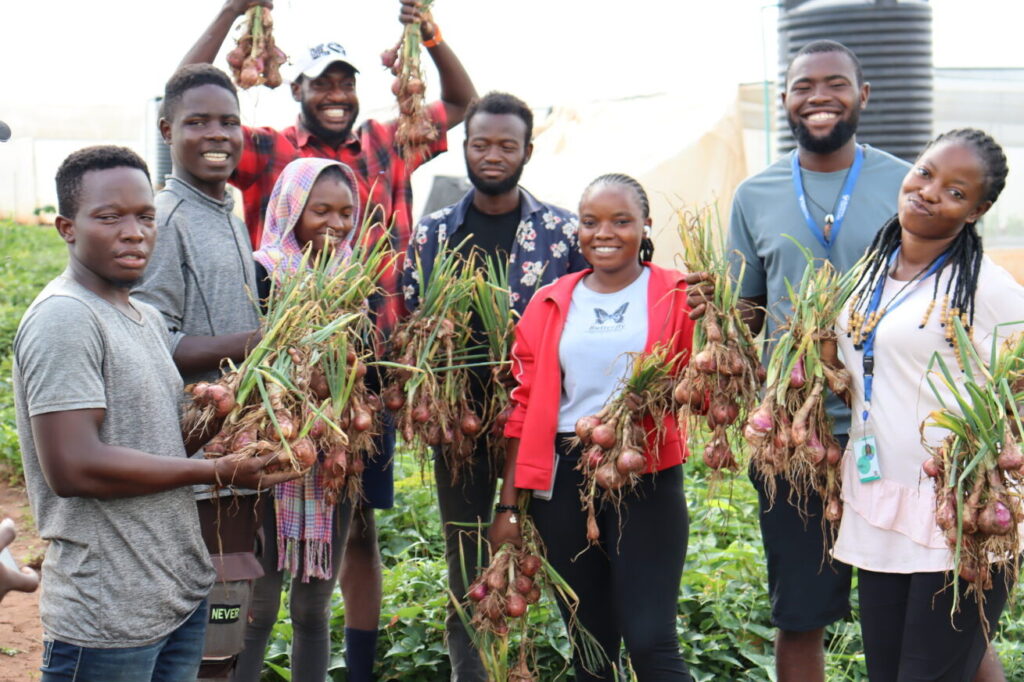
The HortiNigeria program (2021-2025), funded by the Embassy of the Kingdom of the Netherlands (EKN) in Nigeria, aimed to facilitate the development of a sustainable and inclusive horticulture sector that contributes to food and nutrition security in Nigeria.
60,000 smallholder farmers, of whom 50% are youth and 40% are women, will have increased productivity and/or income, resulting in an annual incremental production value of 9.7 million euros.
The goal of the program is aligned with the Dutch and Nigerian food security and private sector development objectives and fits within the framework of the larger food systems transformation in Nigeria. HortiNigeria aimed to enhance smallholder farmers’ social capital and contribute to their empowerment within the market. HortiNigeria particularly focused its interventions on women and youth.
View HortiNigeria’s Stories of Change magazine to explore project highlights, success stories, and the collective impact that drove growth and sustainability in Nigeria’s horticulture sector.
HortiNigeria on Social Media
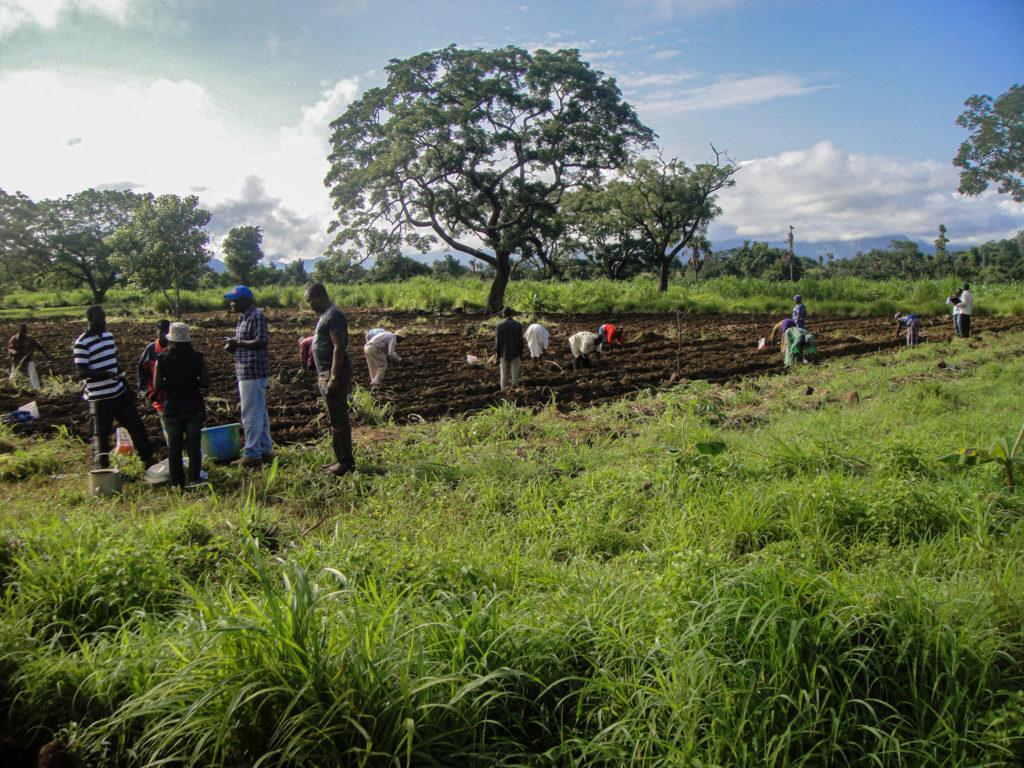
Sub-Objectives
- Double smallholder productivity and income.
- Achieve ecologically sustainable land use and climate-resilient farms.
- Create direct jobs supported by private sector development programs.
- Reach Dutch and local businesses with a supported plan to invest, trade, or provide services.
- Improve access to finance and make financing infrastructure more inclusive and effective
- Improve access to digital solutions.
Expected Outcomes
By end of program:
- 60,000 smallholder farmers, of whom 50% are youth and 40% are women, will have increased productivity and/or income, resulting in an annual incremental production value of 9.7 million euros;
- Acreage under sustainable land use will have increased by 15,000 hectares;
- At least 2,000 entrepreneurial farmers (50% youth and 40% women) will have adopted new knowledge and/or technologies;
- 50 horticulture-related small and medium-sized enterprises (SMEs) will have a business and investment plan to invest, trade or provide services; and
- Of these SMEs, 50% will be youth-owned and 40% will be female-owned.
HortiNigeria was led by IFDC and implemented together with East-West Seed Knowledge Transfer Foundation, Royal Tropical Institute (KIT), and Wageningen University & Research under a budget of €9.7 million.

HortiNigeria Newsletters and Annual Reports
Newsletters
Volume 07
Volume 08
Volume 05
Volume 06
Volume 03
Volume 01
Volume 04
Volume 02
Annual Reports
January 2024 – December 2024
January 2023 – December 2023
November 2021 – December 2022
Project Results
2024
- Empowered over 67,000 smallholder farmers and agro-dealers with knowledge on eco-efficient practices and business management.
- Piloted 21 innovations, benefiting 2,000 farmers, and achieved a 77% increase in productivity for tomato, pepper, onion, and okra, while reducing post-harvest losses by 83%.
- Introduced eco-friendly methods that have been applied on over 7,000 hectares of land.
- Enhanced financial access by securing over €4 million in funding for farmers and MSMEs.
- Trained nearly 600 youth as spray service providers
- Established 90 B2B partnerships and contributed to key policy developments, including the National Seed and Tomato Policies.
2023
- Trained more than 56,000 smallholder farmers (28% women and 74% youths) and 67 agro-dealers on eco-efficient solutions and business management in Kaduna and Kano.
- Piloted 18 innovations to scale up among over 1,900 entrepreneurial farmers in Ogun and Oyo states, and facilitated business linkages and partnerships.
- Boosted productivity by 92.6% for all targeted crops and positioned over 2,000 ha of land under sustainable agriculture for men, women, and youths.
- Trained agro-input dealers on such practices, leading to the expansion of their businesses to provide private extension services to farmers.
- Dialogues on better practices and market opportunities brought a better-coordinated structure among young tech-savvy entrepreneurial farmers.
- Improved access to financial services for actors in the horticultural space through discussions and meetings with financial institutions.
- Held consultations with several stakeholders, fostering connections and encouraging public-private action, to address concerns in the policy environment.
2022
- Trained more than 12,000 smallholder farmers and 30 agro-dealers on eco-efficient good agronomic practices and business management in Kaduna and Kano.
- Identified 20 innovations to scale up among over 500 entrepreneurial farmers in Ogun and Oyo states.
- Facilitated business linkages and partnerships, igniting change within the sector.
- Exposed farmers to better production practices and technologies, which has boosted productivity, income, and land under sustainable agriculture for men, women, and youths.
- Trained agro-input dealers on such practices, leading to the expansion of their businesses to provide private extension services to farmers.
- Dialogues on better practices and market opportunities brought a better-coordinated structure among young tech-savvy entrepreneurial farmers.
- Improved access to financial services for actors in the horticultural space through discussions and meetings with financial institutions.
- Held consultations with several stakeholders, fostering connections and encouraging public-private action, to address concerns in the policy environment.
- Gained momentum on stimulating business-to-business linkages and partnerships, as over 2,000 smallholder farmers were connected to input and output markets.
Knowledge Products
Stories of Change Magazine
Crop Guides
Tuta Absoluta
Cabbage
Cucumber
Hot Pepper
Okra
Onion
Sweet Corn
Sweet Pepper
Tomatoes
Watermelon
HortiNigeria Work Plan Narrative 2025
HortiNigeria Program Midterm Review Draft Report
Exploring Digital B2B Platforms to Strengthen Nigeria’s Horticultural Sector
What is a Spray Service Provider?
Safe Use and Application of Crop Protection Products (CPP)
Financial Literacy: Training Manual for Horticulture Value Chain SMEs
Basics of Record Keeping: Training Manual for Horticulture Value Chain SMEs
Workbook: For Horticulture Value Chain SMEs on Writing of Business Plans
Piloting Innovation: Lessons Learned from Introducing Solar-Powered Irrigation Systems in Nigeria
Tuta Absoluta Information Poster (English and French)
HortiNigeria 2023 Annual Report Annex
HortiNigeria Partners Catalogue
Business Plan Development Manual for Horticulture Value Chain SMEs
Unlocking Opportunities for Youth in Oyo and Ogun through Innovation and Technology Briefing Paper
Scoping and Mapping of Postharvest Losses
Rapid Assessment of Protected Cultivation in Nigeria
Assessment of the Vegetable Sector in Nigeria
HortiNigeria Program Launch Publicity Report
Addressing Tomato Price Volatility in Nigeria: Strategies for Supporting Farmers
Women in Horticulture: Transforming Livelihoods and the Sector in Kano and Kaduna
Stories of Change: Transforming the Sector, One Story at a Time
Horticulture Sector Roadmap for Southwest Nigeria


